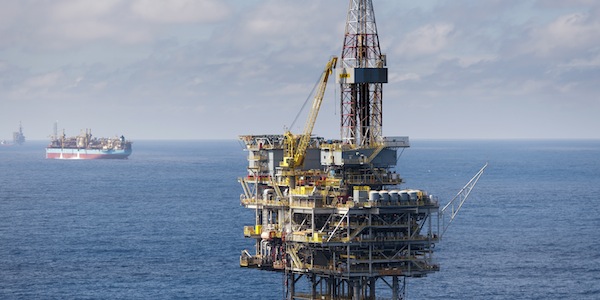Senior oil and gas professionals expect the USA and Brazil to be the two most favourable investment destinations in 2014, according to a new research report released in January by DNV GL, a leading technical advisor to the sector.
‘Challenging Climates: The outlook for the oil and gas industry in 2014’ is an annual litmus test for industry sentiment in the year ahead. It has been produced with input from a survey of more than 430 senior oil and gas professionals and in-depth interviews with more than 20 industry executives.
 Illustration92 percent of regional respondents are highly or somewhat confident about the overall prospects for their business, the highest figure recorded amongst worldwide respondents.
Illustration92 percent of regional respondents are highly or somewhat confident about the overall prospects for their business, the highest figure recorded amongst worldwide respondents.
Although the overall outlook for the Americas is optimistic, challenges still lie ahead, according to the report.
An acute lack of skilled professionals is cited as the top barrier to business growth in North America this year and nearly half (45%) of the respondents to DNV GL’s research believe challenges surrounding compliance with new regulation in the US will affect the progress of their business.
The report also identfies a greater discipline over capital expenditure (capex) across the oil and gas industry in 2014, as operational costs continue to rise and companies turn their focus to projects that will deliver the greatest return on investment.
Since 2012, the percentage of industry leaders planning to step up investment in new projects has dropped by 18 percentage points.
Peter Bjerager, DNV GL’s Divisional Director, Americas, says:
“The industry is particularly positive in the USA thanks to the expansion of the unconventional oil and gas sector and rising offshore production, but the outlook is clouded by difficulties in finding skilled professionals, particularly project managers and offshore-related engineers, which is driving up day rates to a median of USD 1,000. Rising costs and uncertainty over the oil price will also cause the industry to keep a tighter rein on capex.
“This comes during a period when we are starting to see signs of greater consolidation across the oil and gas industry supply chain. Our research gives clear signs that pressure will be put on suppliers to become more innovative, to reduce costs and to show value in 2014 by providing access to scarce, in-demand skills and demonstrating real quality in the products and services they deliver.”
In response to the rising costs, operators will more often seek to rely on bigger supply chain partners that are more capable of providing a consistent global service, according to the report.
16 per cent of North American survey respondents say that their company will increase its use of larger partners.
In turn, DNV GL’s research affirms that operators will focus on controlling risks and costs by seeking greater standardisation in their procurement approaches. This gives rise to greater interest in operators centralising, standardising and streamlining their supply chain to avoid costs in creating new solutions.
Companies will also increasingly ask suppliers to be more consistent in their approach to quality and risk management, according to the report.
One in two (52%) survey respondents plans to increase efforts here and the focus on quality management systems will be heavily pointed to companies’ supply bases: 57% are aiming to increase their focus on quality management systems, with a specific aim of ensuring better supply chain consistency
Source: DNVGL.com
:


